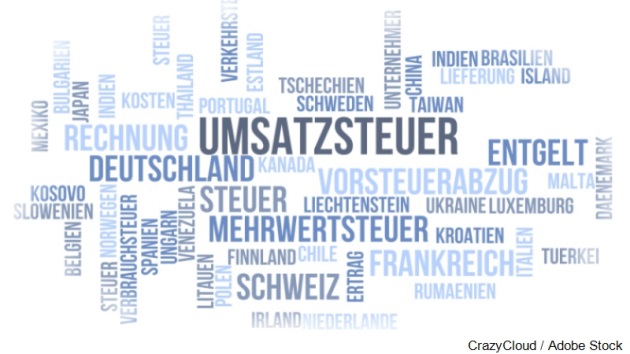Online message – Thursday 03/23/2023
sales tax | Tax group – renewed ECJ submission (BFH)
It should be clarified whether the previous assumption of non-taxability, so-called internal sales, should be retained. This is the second request for a preliminary ruling in this matter, which is now about a question that has become dubious due to the first decision of the ECJ in these proceedings (; published on ).
Background: According to a case law established 100 years ago by the Reichsfinanzhof, which was later incorporated by the legislature into the VAT Act was taken over, sales between the members of a tax group are not subject to sales tax because the controlled company is regarded as a “dependent” part of the overall company of the higher-level controlling company. Doubts about this consideration arise from the fact that the ECJ regards the controlled company as independent and according to its case law the controlled company must not lead to the risk of tax losses.
Facts and procedure:
The 5th Senate of the BFH had, among other things, submitted the question to the ECJ for a preliminary ruling as to whether the provisions of Art. 4 para. 4 subpara. 2 of the Directive 77/388/EEC authorization provided for Member States to treat as one taxable person residents of their territory who are legally independent but closely linked by mutual financial, economic and organizational links, as one taxpayer, in the manner
-
that treatment as a taxable person is with one of those persons who is a taxable person for all transactions of that person or in such a way that
-
that the treatment as a taxable person must necessarily lead – and thus also at the expense of considerable tax losses – to a VAT group separate from the closely related persons, which is a fictitious entity to be created specifically for VAT purposes (, see our online message from June 18, 2022 and Brill, NWB 26/2020 p. 1902).
In this regard, the judges of the ECJ stated ( “Tax Office T”; see our online message from 1.12.2022):
Art. 4 para. 4 subpara. 2 of the Sixth Directive 77/388/EEC shall be interpreted as not preventing a Member State from designating the controlling company of that group as the sole taxpayer of a group of persons who are legally independent but closely linked by mutual financial, economic and organizational relationships if the latter is in the is able to impose its will on the other members of this group and provided that this determination does not lead to a risk of tax losses.
Union law must be interpreted in such a way that, in the case of an entity that is the sole taxpayer of a group of persons who, although legally independent, are closely linked by mutual financial, economic and organizational relationships, and which, firstly, carries out economic activities for which it is subject to the tax and, on the other hand, activities performed in connection with the performance of public authority tasks for which it is not considered to be subject to VAT under Article 4(5) of the Sixth Directive, the supply of a service in connection with that public authority activity by a member of that group may not be taxed in accordance with Article 6(2)(b) of this Directive.
The parties involved had the opportunity to comment. The plaintiff sees herself through this “Tax Office T” confirmed in their legal opinion. She also points out that a directive-compliant interpretation of national law in such a way that payments made by the controlled company to the controlling company are taxable is ruled out. The FA objects to the statements of the ECJ on withdrawal taxation.
The BFH now puts the following questions to the ECJ on the interpretation of Art. 4 para. 4 subpara. 2 of the Directive 77/388/EEC
before:
-
If several persons are combined into one taxpayer according to Art. 4 para. 4 subpara. 2 of the Directive 77/388/EEC
to the fact that services between these persons for consideration are not subject to the scope of application of value added tax under Article 2(1) of that directive? -
Are services between these persons subject to value added tax if the recipient of the service is not (or only partially) entitled to deduct input tax, as otherwise there is a risk of tax losses?
If the ECJ decides that internal sales are taxable, contrary to the established BFH case law, this would have far-reaching consequences. In terms of sales tax law, the tax group serves as a design tool for entrepreneurs who are not entitled to full input tax deduction (e.g. banks and insurance companies, entrepreneurs in the health and social services and in the education sector and landlords of apartments). Previously, non-deductible input tax amounts could be avoided for such companies by establishing tax groups with service providers, so that the services received are not taxable.
Those: ; NWB database, BFH press release no. (JT)
Source(s):
NWB SAAAJ-36253
